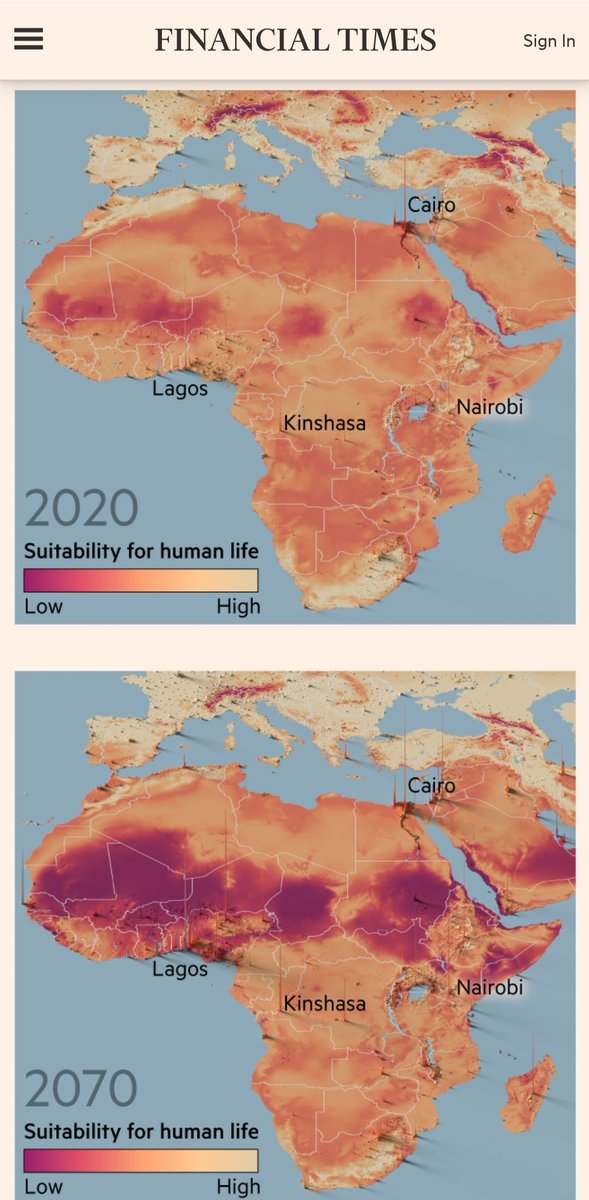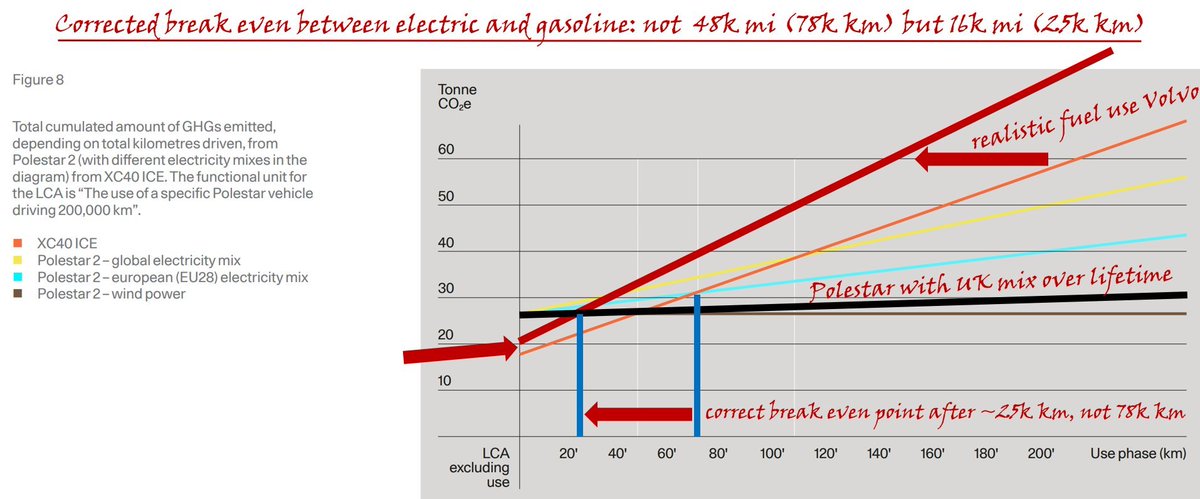
The @FT with a very nice video on what the #COP26 is about and a scary visualization of where the earth will become "too hot to handle" for comfortable human living.
This picture shows Africa in the mean (SSP2-4.5) scenario: many people forced to migrate.
ft.com/content/072b5c…
This picture shows Africa in the mean (SSP2-4.5) scenario: many people forced to migrate.
ft.com/content/072b5c…

The SSP5-8.5 they use as worst case is highly unlikely (not so much because of policy but because of technical development imho) but do we want to take even a 5% or so chance on billions of people having to migrate? 



Anyway, one of the things we will have to face that climate change will hit the global south hardest with tens or hundreds of millions migrating and many millions dying because of heatwaves and famine after failed crops and we (the biggest emitters) are the cause.
So it's time to start thinking not only of lowering levels of CO2 but also about caring for the victims we can already predict we are causing.
How will we help?
Where will they go?
This will be a *massive* change but fortunately some areas become better inhabitable too...

How will we help?
Where will they go?
This will be a *massive* change but fortunately some areas become better inhabitable too...


• • •
Missing some Tweet in this thread? You can try to
force a refresh






